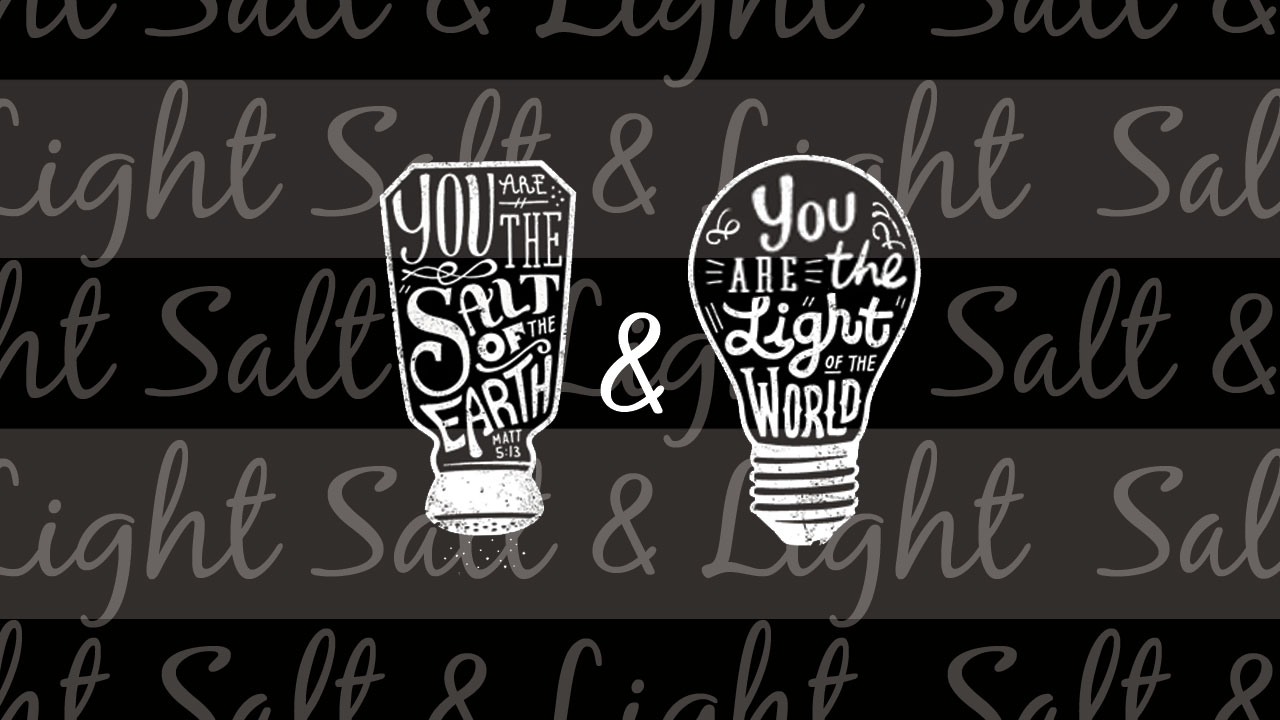Salt and Light
13 “You are the salt of the earth. But if the salt loses its saltiness, how can it be made salty again? It is no longer good for anything, except to be thrown out and trampled underfoot.
14 “You are the light of the world. A town built on a hill cannot be hidden. 15 Neither do people light a lamp and put it under a bowl. Instead they put it on its stand, and it gives light to everyone in the house. 16 In the same way, let your light shine before others, that they may see your good deeds and glorify your Father in heaven. Matthew 5:13-16New International Version (NIV)
I teach literature at a community college in Jersey City. In my World Literature to 1650 class I have the opportunity to teach several religious texts, including the New Testament. Last week my students read the Sermon on the Mount. I used a different teaching method to discuss the various themes in the Sermon on the Mount. Each student was assigned 2-4 verses and two tasks. Discover what the verses say to think or do–observation; and interpret what the verses mean. These are the first two of the three steps in inductive bible study–observation, interpretation, application. Once all my students had read and come to a conclusion about the meaning of their verses, I lined them up on either side of a very long table. So the two rows of students were facing each other. Each pair had to share their verses and what they thought the verses meant. Then one line moved down, the person on the end moved to the opposite end, and each new pair then shared their verses again. So the students shared their verses with everyone on the opposite side of the table–it’s kind of a take on “speed dating.”
As I wandered around listening to the students, I was fascinated by their interpretations. Most of them have not read the New Testament, and they brought their own beliefs, values and life experience to bear on what they read. They were intent on explaining what they thought each passage meant. In the process, they learned some of Jesus’ central teachings.
Working in a secular college can often be difficult. I am called to be salt and light, and in a spiritual sense, the campus is a dark place. Academia is generally closed to spiritual truth and antagonistic to people of faith. And yet, I am called to be salt and light. Salt is important to food, not just for taste, but also for preservation. How do Christians add flavor to the world? How do we preserve the world? How do our lives as Christians add value to the world?
When I teach the New Testament I offer the class what I call a “disclaimer.” I give my testimony. I believe it’s only fair to let them know that while we look at the New Testament as a religious text in the class, I know it much more intimately than I know the other texts, and it has a value and meaning to me the other texts do not have. By God’s grace I attempt to be salt and light every day on campus. Pray for me!









Wow! Thanks for sharing this. I love the opportunities the Lord gives us to be salt and light. I heard once that neither salt or light involve sound which reminds me of “preach the gospel and when necessary use words.” Will be praying for your students.
Ann,
Thanks for your encouragement. I never thought of the lack of sound – very interesting. Thanks for your prayers.
Katie
Oh wow – what a great opportunity to witness in a secular college. I am sure that it is not easy, yet thankful that you are allow to teach using Scripture.
So much literature reflects the Judeo-Christian values and the concepts of sacrificial love. So many symbols are tied to the Bible. I always found it a rich opportunity as well. Keep shining.
That’s so true- I love teaching Lit ?
So awesome that you can open the eyes of some students thru your class. I’m on the other end, as a student, I’m able to interject some of my beliefs into my assignments, specifically in my Psych class.
That’s great Laurie. What degree are you pursuing?